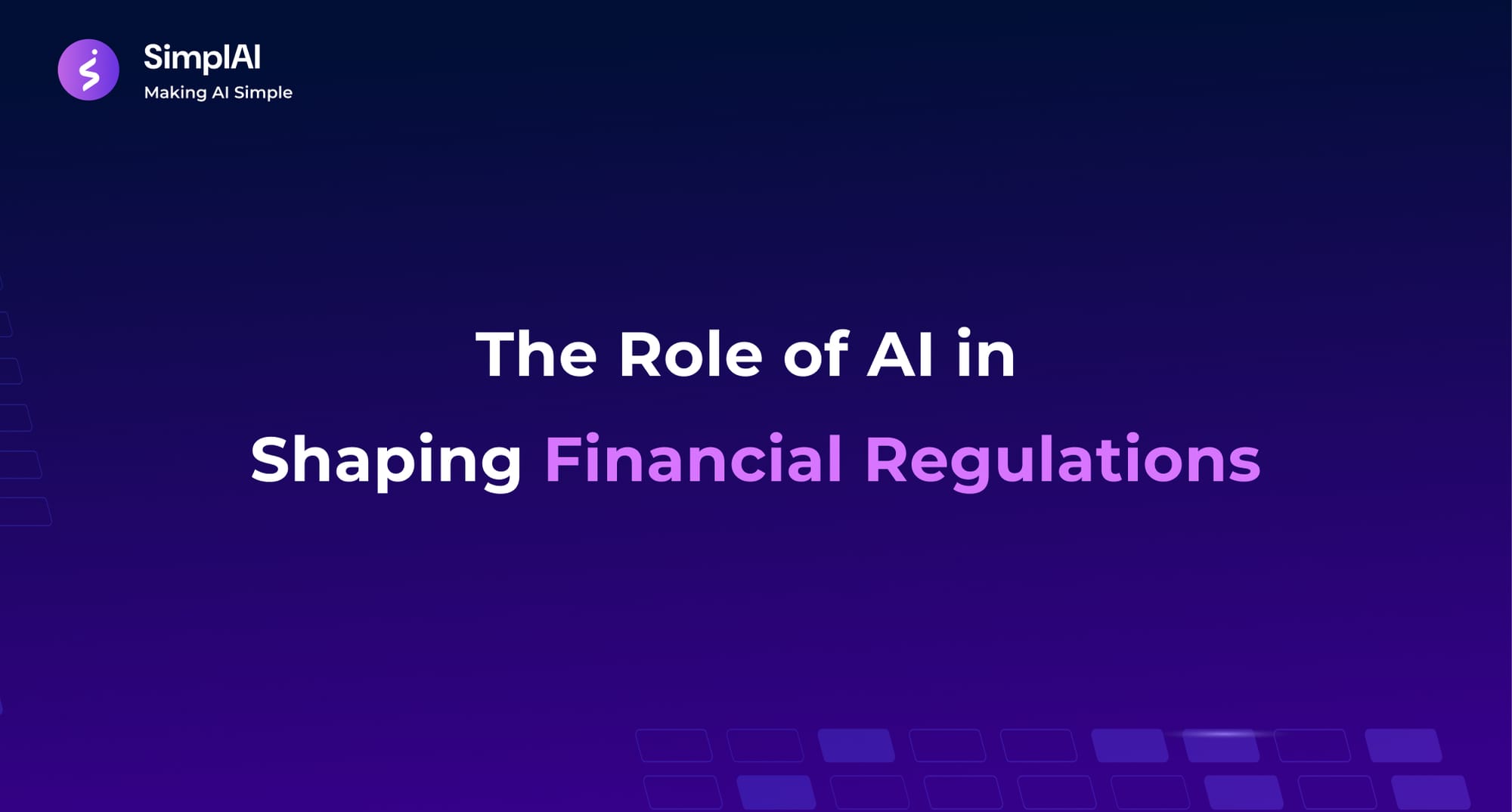The Role of AI in Shaping Financial Regulations

In the rapidly evolving landscape of finance, the integration of Artificial Intelligence (AI) is not just a trend; it is a seismic shift that is transforming how financial services operate, comply with regulations, and engage with customers. As financial regulators, understanding the implications of AI in financial regulations is vital. This blog explores how AI is reshaping financial regulations and the opportunities and challenges it presents to your regulatory frameworks.
The Rise of AI in Financial Services
The adoption of AI technologies in the finance industry has surged. Innovations such as machine learning and fintech AI compliance solutions are not only enhancing operational efficiency but also enabling more effective risk management and fraud detection. AI provides financial institutions the capacity to process colossal amounts of data, predict trends, and formulate informed, timely decisions. According to recent findings from the Financial Stability Board (FSB), the rapid integration of AI will require enhanced supervisory and regulatory capabilities to tackle the complexities introduced by these technologies (FSB, 2024).
However, the accelerated pace of AI adoption poses unique regulatory challenges that financial authorities must address, necessitating a reevaluation of existing frameworks to safeguard against potential systemic risks.
Regulatory Complexity and the AI Landscape
As financial regulation continues to evolve alongside AI technology, its complexity has increased. Financial institutions are expected to comply with a labyrinth of regulations, many of which struggle to keep pace with technological advancement. The AI technology in the finance industry has driven the emergence of a diverse range of applications, from risk management to customer relationship enhancements. Each of these innovations introduces new nuances in governance that regulators must carefully consider.
For instance, the black-box problem—where AI algorithms are often not transparent—presents significant challenges in ensuring accountability and regulatory compliance (Deloitte, 2025). Regulators face the daunting task of understanding these complex systems to enforce standards while promoting innovation.
The Promise of AI and Its Regulatory Implications
AI has the potential to streamline compliance, mitigate risks, and transform traditional financial services. For instance, artificial intelligence credit management uses comprehensive data evaluations to enhance credit scoring processes, thus improving accuracy in assessing creditworthiness. Furthermore, AI-driven systems can identify fraudulent activities in real time, making compliance and risk management more efficient (Centraleyes, 2025).
However, this promise comes with burdens. Regulators must ensure that AI systems are free from bias and discrimination, particularly as they often leverage vast datasets that could perpetuate existing inequalities. The European Union's AI Act, for example, seeks to impose stringent requirements on high-risk AI applications within the finance sector, mandating transparency, fairness, and accountability (EU Commission, 2023).
AI-Powered Compliance Solutions
Fintech AI compliance solutions are emerging as vital assets for financial institutions facing regulatory challenges. These solutions harness machine learning to automate compliance processes, reducing the labor-intensive aspects of regulation (Deloitte, 2025). By implementing AI tools for regulatory reporting and monitoring, financial firms can enable timely identification of compliance issues and streamline their operational workflows.
Emerging trends indicate that investments in regtech (regulatory technology) will continue to grow, reflecting a rising reliance on AI solutions that simplify the regulatory landscape while ensuring compliance—an essential aspect to maintain consumer trust and shield firms from potential regulatory penalties.
Challenges Ahead for Financial Regulators
Despite the many benefits AI brings, it also amplifies certain vulnerabilities that could increase systemic risks. Some prominent concerns include:
- Data privacy and security issues: As financial institutions gather vast amounts of data, ensuring its protection becomes paramount to prevent breaches which could result in significant legal implications.
- Model risk: Regulators must seek to ensure that financial institutions can effectively manage and evaluate their AI models, ensuring their outputs can be justified and are free from bias (Toms et al., 2023).
- Cybersecurity threats: Increased reliance on AI makes financial systems more susceptible to cyberattacks, necessitating robust cybersecurity measures to shield sensitive information (Kearney et al., 2024).
In all of this, a balanced regulatory approach is vital. Financial authorities need to be adaptable and proactive, working collaboratively with industry stakeholders to craft policies that foster innovation while protecting consumers and the integrity of the financial system.
Conclusion
The role of AI in shaping financial regulations cannot be overstated. As financial regulators, the imperative to embrace these technologies while ensuring compliance, transparency, and protection is a challenging but necessary path forward. How will your regulatory framework adapt to accommodate the evolving demands of AI technology in finance?
At SimplAI, we understand the complexities your organizations face and offer tailored solutions that help navigate through the nuances of AI-driven finance. Together, let's build a future where technology enhances not just the efficiency of financial services but also ensures robust compliance and consumer protection. Explore how our innovative strategies can assist your regulatory framework today.

